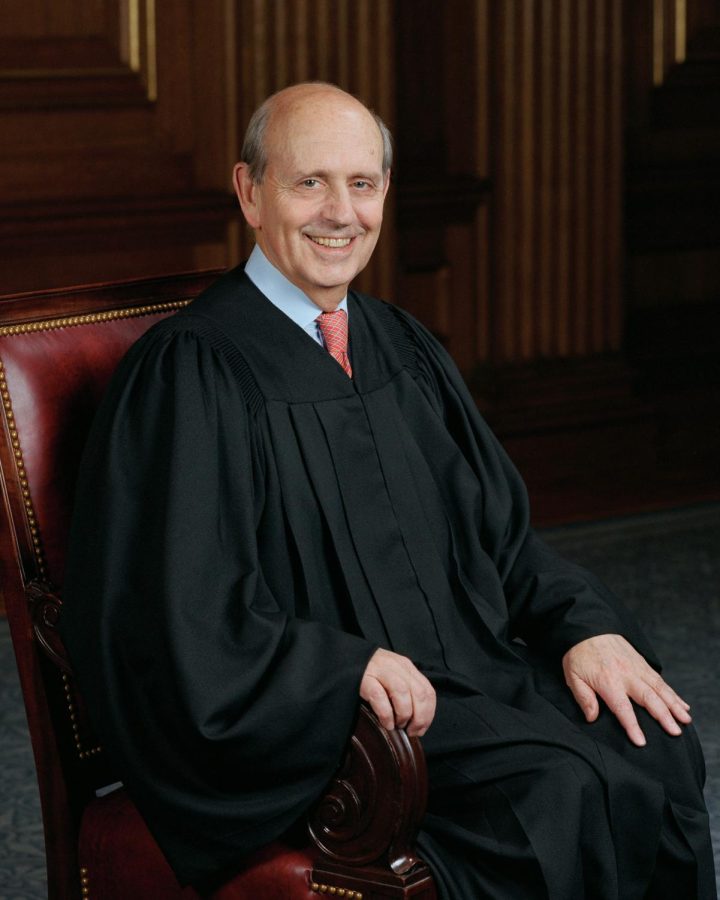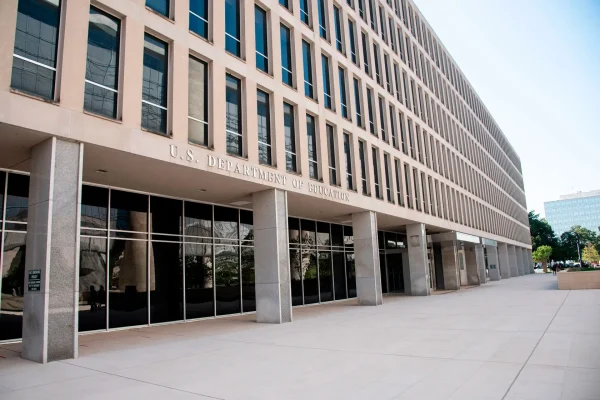Government & Law professors discuss the retirement of Justice Stephen Breyer
Breyer has spent 28 years as a justice for the nation’s highest court. (Photo courtesy the United States Supreme Court website)
February 4, 2022
On Jan. 26, news broke that Stephen Breyer, the senior-most liberal Associate Justice of the United States Supreme Court, was retiring from the nation’s highest bench, causing a nationwide stir. Notably, there is much discussion regarding Breyer’s replacement, who President Joe Biden has stated will be an African American woman just as he promised during his presidential campaign.
Government & Law Professor Matthew Stein discussed the repercussions of Breyer’s impending departure from the Supreme Court and noted his optimism regarding Democratic Party unification.
Stein has little concern regarding the more moderate Democratic Party senators Joe Manchin of West Virginia and Kyrsten Sinema of Arizona confirming Biden’s nominee. He noted that Sinema and Manchin have not stopped the Democrats from being “incredibly efficient” in passing judicial nominees.
“There have been over forty judicial nominees confirmed in Biden’s first year, and these have been through unanimous Democratic support,” Stein wrote in an email. “I would be highly surprised to see either Sinema or Manchin vote against any Supreme Court nominee picked by Biden.”
John Kincaid, professor of Government & Law, echoed Stein’s optimism, stating that a moderate liberal justice could easily gain their approval in addition to that of a few Republicans. He also stated that it would be unlikely that whoever was chosen to replace Breyer would have their confirmation delayed, citing the 2020 confirmation of a conservative justice to the Supreme Court.
“I think it’s unlikely that Republicans will be able to delay the nomination just like Democrats were unable to delay the confirmation of Amy Coney Barrett,” Kincaid said. “So I would expect the confirmation process to be complete well before the midterms.”
However, Government & Law Professor Bruce Murphy expressed concern regarding the possibility of Manchin and Sinema voting against Biden.
“It is a 50-50 Senate, and you can’t be positive that Manchin and Sinema will vote for whoever Biden chooses,” Murphy said.
Murphy further highlighted how Supreme Court nominations could be likened to a “game” between the U.S. Senate and the White House, adding that the retirement of Stephen Breyer allows a progressive judge to replace the more moderate Breyer on the court.
“Breyer was a moderate liberal on the court, so he was not looking for a liberal position on an issue, but a moderate position on an issue,” Murphy said.
Furthermore, Murphy regarded the choice for the nominee as not an easy decision to make. While the most floated selection is initially Federal Judge Ketanji Brown Jackson, Murphy claimed that there are now up to a dozen qualified candidates who are Black women.
In regards to choosing a “first” for a Justice, Murphy used the example of the late Justice Antonin Scalia, the first Italian-American on the Supreme Court who was appointed by President Ronald Reagan. Reagan wanted to establish a legacy with his pick, a strategy that Murphy said Biden was also attempting to achieve.
“[The Federalist Society] recommended Scalia to Reagan, and Reagan asked, ‘Is he Italian?’” Murphy explained. “And when they said yes, he threw out all of the information and went to the press and said, ‘Let me introduce to you the next justice of the Supreme Court, Antonin Scalia.’”
Stein further expressed his excitement regarding the promise Biden made of an African American woman Justice. He noted that they are largely unsupported within their party, and this would be a huge step for representation.
“I think it’s great. African American women are the strongest and most consistent voting bloc for Democrats, and the party often inadequately supports its base,” Stein wrote. “I’m not suggesting that an African American woman in the Supreme Court is nearly sufficient, but if descriptive representation has value, and I believe it does, then having an African American woman on the nation’s highest court is a significant moment in U.S. history.”
President Biden has promised to announce his nominee for the vacant seat on the Supreme Court by the end of February.













































































































